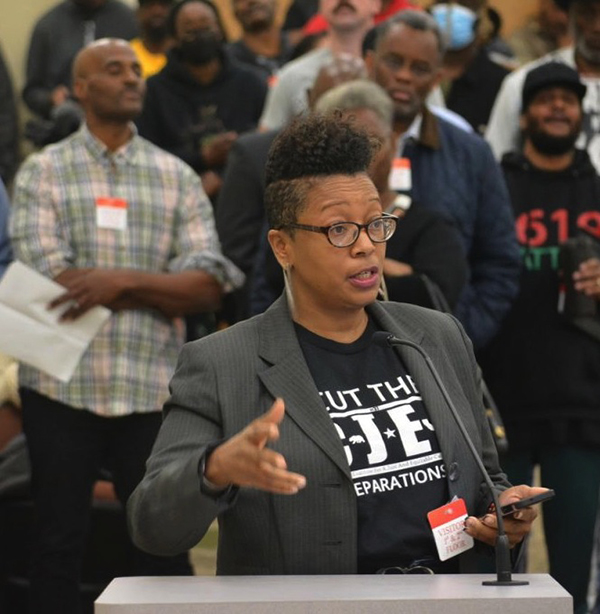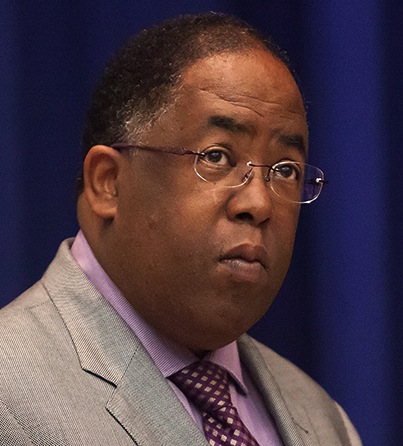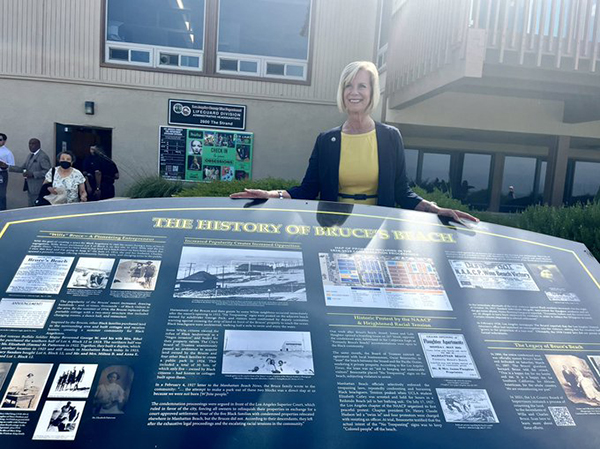By Sue Favor
Contributing Writer
LOS ANGELES — The word “acting” was lifted from Erica Blyther’s title three weeks ago, as the Los Angeles Board of Public Works appointed the longtime environmental scientist the city’s new petroleum administrator for the Office of Petroleum and Natural Gas Administration and Safety. She is the second to hold the job since the position was revived in 2016.
“Having worked closely with Ms. Blyther over the past year, I have absolute confidence that we’ve made the right choice,” board President Greg Good said. “[Her] ability to work with diverse constituencies … will be crucial as we navigate the complex landscape of oil and gas policy in our city and usher in a new era in the history of oil in Los Angeles.”
Blyther took the interim role in November 2019, when her predecessor left to run the California Geological Energy Management Division. She led the office throughout the COVID-19 pandemic, during which time four of the six members of her staff retired or changed jobs.
Despite her experience, the city conducted a nationwide search before determining she was indeed the best person for the job.
“Oil and gas issues in Los Angeles are incredibly complex, and managing them requires a deep understanding of the issues our communities face, strong relationships with our partners and local leaders, and solutions … to make Los Angeles less reliant on drilling and fossil fuels,” Blyther said.
“I am ready to build from the foundation laid with this office’s renaissance over the last five years, to further safeguard the health of our residents.”
Blyther, who graduated from Duke University, grew up in the Windsor Hills area. She is the first African-American woman to head Office of Petroleum and Natural Gas Administration and Safety, and she arrives at a time when there is both a national and statewide push to decrease reliance on fossil fuels.
Blyther’s new job is a diverse mixture of overseeing compliance issues, coordinating between agencies and protecting the interests of those who work in the area’s oil industry.
“I want to ensure public health safety, as well as work for environmental justice and protecting the economic health of oil workers,” Blyther said. “I’m trying to find a balance for everyone.”
One example of how those many worlds can collide is the St. James drill site, just north of the USC campus. In March 2020, the California Geological Energy Management Division ordered the 21 wells on the site permanently sealed over neighborhood concerns over “life, health, property and natural resources” in an urban area.
The company that runs the site, AllenCo, filed an appeal and a court date for the case has not been set, though a continuation hearing is in two weeks.
Blyther said the site is contentious because it is in a community of color, where there are typically less resources to fight back against infringements.
“People are concerned about oil because they’re concerned about air emissions,” she said. “There are cancer risks, chemicals can get into the water supply and sulfuric acid is emitted into the air. There are a lot of different questions and concerns.”
Towards that end, Blyther gave a presentation earlier this month on environmental justice and racism to the steering committee meeting for Assembly Bill 617, which requires state officials to monitor air quality and make emissions improvements, when necessary.
Within the city limits there are 16 active drilling sites, which is unusual for a major metropolitan area. Los Angeles, however, sits atop 1.6 billion barrels of recoverable oil. About 2.5 million barrels are produced each day through drilling, pipeline and refinery sites, which employ about 31,000 people.
Blyther characterizes her job as that of an information collector and synthesizer. Three entities inspect oil wells, for example: the city Fire Department, South Coast Air Quality Management and California Geologic Energy Management. Her office is responsible for ensuring that drill sites remain in compliance, by working with inspectors and ensuring drillers have the right insurance.
New emphasis from both the federal and local government calls for a slow phasing out of fossil fuel reliance. While Blyther acknowledges that California “has a lot of incentive to back away from fossil fuel,” she feels obligated to also protect the interests of oil industry employees.
“I’m trying to find a balance for everyone,” she said.
Blyther’s office is unique in that it generates significant revenue — about $22 million annually. One of her first tasks will be to hire a support staff. After that, the department will construct a website.
“One of the last items in the City Council budget was to get money for staffing,” Blyther said. “At some point we will display all of our information on a website so we can give a picture to the public.”
Sue Favor is a freelance reporter for Wave Newspapers, who covers South Los Angeles. She can be reached at newsroom@wavepublication.com.












